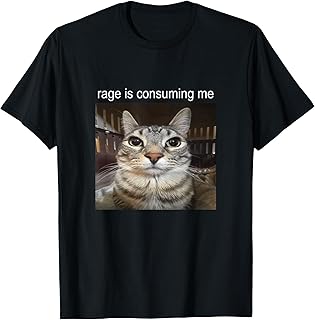What is the origin of the “They Don’t Know” meme?
The “They Don’t Know” meme originated in December 2009 when an image of the Wojak character (also known as Feels Guy) was first posted to the humor website Sad and Useless. The original image depicted Wojak standing uncomfortably in the corner at a party with the caption “I wish I was at home playing video games,” expressing feelings of social anxiety and discomfort.
The meme underwent a significant transformation in November 2020 when Twitter user @urmomlolroasted created a new version with the caption “They don’t know I’m mildly popular on left Twitter,” which garnered over 205,000 likes. This iteration sparked a new wave of popularity and established the now-familiar “They Don’t Know” format that continues to resonate with online communities.
How did this meme become so popular on social media?
The meme’s explosion in popularity during late 2020 can be attributed to its perfect encapsulation of the disconnect between online achievements and real-world social situations. After the initial viral Twitter post, the format spread rapidly across multiple platforms, with users creating countless variations that highlighted their own niche accomplishments and interests.
The format’s flexibility and relatability fueled its viral spread, as people could easily adapt it to reflect their personal experiences, from gaming achievements to social media followings. The meme’s success was further amplified by its timing during the pandemic when many people were experiencing increased online engagement while feeling disconnected from in-person social interactions.
What are the most common variations of “They Don’t Know” meme merchandise?
The merchandise landscape for “They Don’t Know” meme products spans various categories, with doormats and home decor items being particularly popular among consumers. These items often feature the classic Wojak figure standing in the corner, accompanied by different variations of the memorable text format that made the meme famous.
Beyond home decor, the meme has been adapted into apparel, including t-shirts, hoodies, and accessories that allow people to wear their favorite versions of the meme. Many products incorporate customizable text options, enabling buyers to display their own personal achievements or interests that mirror the meme’s original spirit of sharing unrecognized accomplishments.
Why has this meme resonated so strongly with internet culture?
The meme’s profound resonance stems from its ability to capture the universal experience of feeling unrecognized or out of place in social situations, particularly for those who are deeply embedded in online communities. It speaks to the growing disconnect between digital accomplishments and their lack of translation into real-world social currency, creating a shared understanding among internet users.
The format’s success also lies in its ability to simultaneously celebrate and gently mock the experience of being “extremely online,” creating a sense of community among those who relate to the feeling of having significant online achievements that go unnoticed in physical social settings. This duality of self-awareness and humor has helped cement the meme’s place in internet culture.
What makes “They Don’t Know” meme products great gifts for meme lovers?
These products serve as perfect gifts because they combine humor with personal relatability, allowing meme enthusiasts to display their understanding of internet culture while decorating their spaces or expressing themselves through fashion. The merchandise acts as a subtle inside joke that other meme-savvy individuals will immediately recognize and appreciate.
The versatility of “They Don’t Know” merchandise makes it particularly suitable for gifting, as items can be selected to match the recipient’s specific interests or online achievements. Whether it’s a doormat for a new home or a custom piece of apparel, these products offer a way to acknowledge and celebrate someone’s online identity in the physical world.
How can you style “They Don’t Know” meme apparel?
The beauty of meme-based apparel lies in its versatility for both casual and ironically formal situations. The key to styling these pieces is to treat them as statement items that can be paired with more neutral clothing to create a balanced look that doesn’t overwhelm but still maintains the humorous element of the meme.
For maximum impact, these pieces work best when worn in settings that mirror the meme’s context – social gatherings, conventions, or casual outings where fellow internet culture enthusiasts might appreciate the reference. The ironic nature of wearing a socially anxious meme to social events adds an extra layer of humor that stays true to the original spirit of the format.
What are the most popular scenarios depicted in “They Don’t Know” merchandise?
The most popular scenarios featured on merchandise often reflect the meme’s evolution from its original gaming-focused format to encompass a wider range of online achievements and interests. Common themes include references to social media following counts, gaming accomplishments like speedrunning records, and niche hobby expertise.
Many products also incorporate variations that reference platform-specific achievements, such as Reddit karma counts, Twitter viral moments, or gaming statistics. These scenarios resonate particularly well because they capture the essence of having accomplishments that might seem impressive online but carry little weight in typical social situations.
Which social media platforms popularized this meme format?
Twitter played a pivotal role in the meme’s modern renaissance, with the 2020 viral tweet that established the current “They Don’t Know” format serving as a catalyst for its widespread adoption. Following its Twitter success, the format quickly spread to Instagram and Reddit, where it found new audiences and spawned countless variations.
Each platform contributed uniquely to the meme’s evolution, with Reddit fostering community-specific variations, Instagram promoting visually creative adaptations, and Twitter continuing to generate viral iterations that captured different aspects of online culture. The cross-platform spread helped cement the meme’s status as a defining format of the 2020s.
















































































































































































